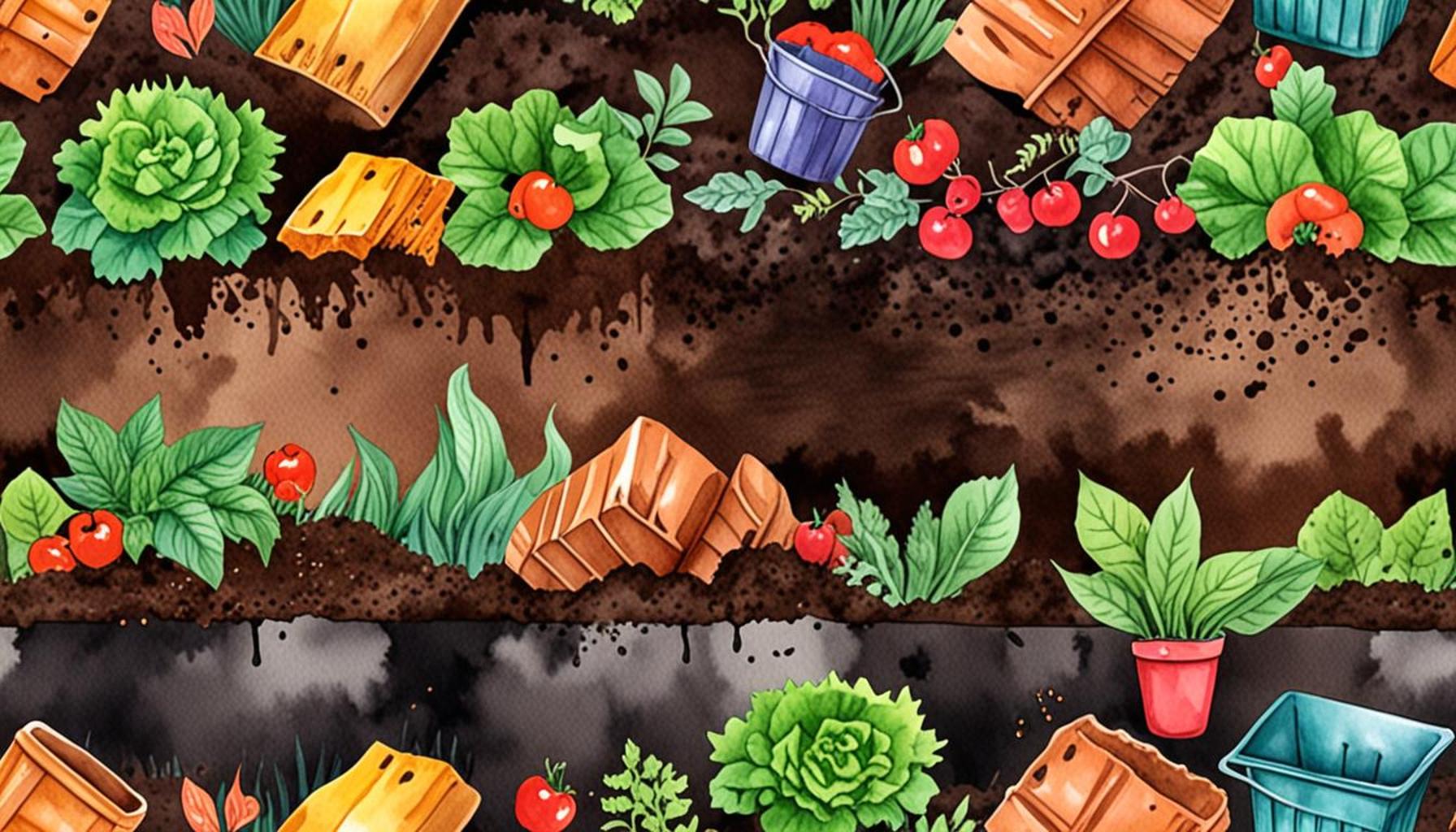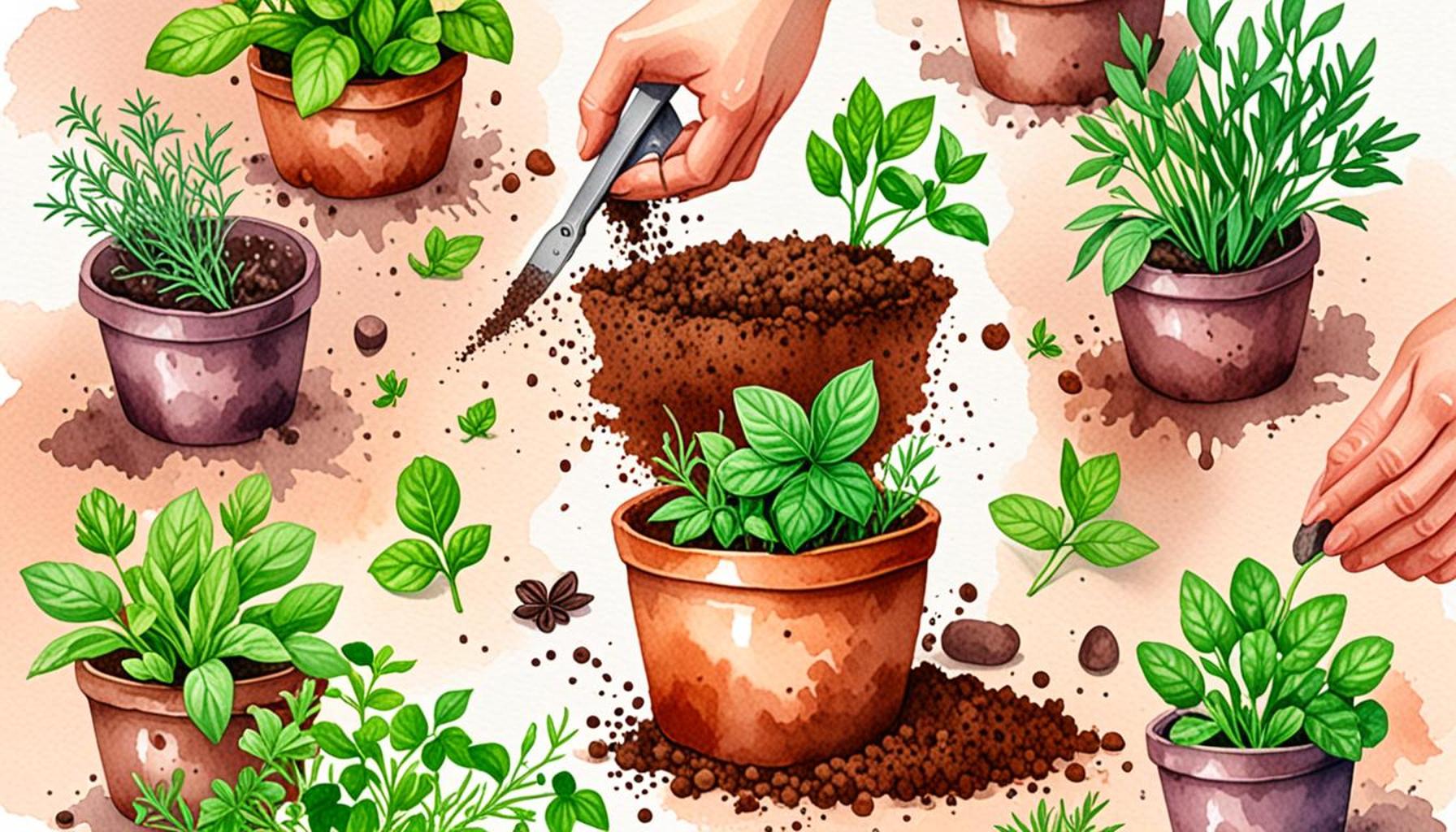The Benefits of Composting in Soil Preparation for Home Gardens

The Importance of Soil Preparation
In today’s eco-conscious world, homeowners are increasingly awakening to the idea of transforming their backyards into flourishing gardens that not only provide beauty but also sustenance. At the heart of any successful garden lies the fundamental principle of quality soil preparation. The process of composting has emerged as one of the most effective means to achieve this, turning organic waste into a golden resource for gardeners.
What is Composting?
Composting is the natural breakdown of organic matter, such as kitchen scraps and yard clippings, through microbial activity. This process not only results in a rich soil amendment but also acts as a powerful tool for sustainable gardening. By harnessing compost, gardeners can significantly improve their soil’s health, which in turn elevates the growth of plants.
Benefits of Composting for Soil Quality
When enhancing soil quality through composting, several pivotal benefits emerge:
- Improves Soil Structure: The incorporation of compost augments soil by increasing its organic matter, which improves aeration, water infiltration, and root development.
- Boosts Nutrient Content: Compost provides essential nutrients such as nitrogen, phosphorus, and potassium, which are vital for the healthy growth of plants. For instance, nitrogen is especially important for leafy vegetable crops like spinach and lettuce.
- Enhances Moisture Retention: By improving soil structure, compost aids in moisture retention, thereby reducing the frequency of watering. This is particularly beneficial in drought-prone areas of the United States, such as California and Texas.
The Environmental Impact of Composting
Beyond the garden bed, the advantages of composting resonate deeply on an environmental scale. As gardeners embrace composting practices, they actively participate in waste reduction efforts. Homeowners can divert food scraps and yard debris from landfills—where they would otherwise release harmful greenhouse gases—while simultaneously nurturing their gardens.
- Reduces Chemical Usage: The application of compost diminishes the need for synthetic fertilizers, promoting a healthier and more natural growing environment.
- Encourages Biodiversity: Well-composted soil fosters a diverse population of beneficial organisms, such as earthworms and microorganisms, that support soil health and plant life.
- Supports Healthy Plants: Plants grown in compost-rich soil tend to be stronger, more resilient, and more productive, resulting in bountiful yields that can elevate any home cook’s meals.
Getting Started with Composting
For those new to composting, beginning the journey can be as simple as designating a space in your backyard for a compost pile or bin. Common compostable materials include fruit and vegetable scraps, coffee grounds, grass clippings, and dry leaves. However, it’s crucial to balance green materials (rich in nitrogen) with brown materials (rich in carbon) to achieve optimal decomposition.
In conclusion, the practice of composting opens a world of possibilities for transforming your garden while simultaneously benefitting the environment. Join the movement, and witness how this natural, enriching process can rejuvenate not just your soil, but the entire ecosystem of your backyard garden.
DIVE DEEPER: Click here to learn about the benefits of mulching
The Transformative Power of Compost in Soil Preparation
As more homeowners recognize the importance of sustainability, the practice of composting has gained significant traction in home gardening circles. At its core, composting serves as an organic solution to revitalize and enrich soil, offering invaluable benefits for those seeking to cultivate healthy, vibrant gardens. Not only does it represent an eco-friendly approach to waste management, but compost also enhances soil preparation in several profound ways.
Revitalizing Soil Health
Composting plays a crucial role in rejuvenating depleted soils, which often suffer from a lack of organic material and essential nutrients. The rich, humus-like material produced through composting acts as a natural fertilizer, introducing microbial life that promotes soil fertility. Studies have shown that soils amended with compost exhibit significantly higher organic matter content, which translates to better overall soil health. Home gardeners can experience the following advantages:
- Enhanced Nutrient Availability: Compost contains a well-balanced mix of macro- and micronutrients that plants require, including vital elements like calcium and magnesium. When integrated into the soil, these nutrients become readily available for root uptake, promoting vigorous plant growth.
- Improved Soil pH: Many home garden soils can be too acidic or alkaline. Composting can help buffer soil pH levels, creating a more neutral environment that fosters optimal nutrient absorption for a diverse range of plants.
- Increased Organic Matter: The addition of compost improves soil texture, resulting in a framework that holds moisture and nutrients better. This is especially important in areas with sandy or clay soils, where compost can drastically shift the soil structure, benefiting plant roots.
Promoting a Thriving Ecosystem
Composting not only benefits the gardener but also supports a thriving ecosystem within the garden. Diverse microorganisms, fungi, and beneficial insects can flourish in compost-enriched soils, establishing a healthy community that enhances plant resilience. Home gardeners can see evidence of this interaction as soil becomes more conducive to fostering beneficial flora and fauna that naturally combat pests and diseases.
Incorporating compost also means enhanced drainage and aeration in the soil, which is vital for root development. When soil has the right balance of air, moisture, and nutrients, plants can establish deeper root systems, leading to improved stability and vitality. Healthy plants are not only more productive but also naturally more resistant to environmental stressors.
Cost-Effective and Sustainable Solution
Beyond the immediate benefits in soil preparation, composting represents a cost-effective strategy for home gardeners. By recycling kitchen scraps and yard waste, homeowners can significantly reduce their reliance on expensive store-bought fertilizers and soil amendments. In addition, composting reduces the burden on landfill systems, mitigating the environmental impact of waste disposal.
The act of composting empowers homeowners to take control of their gardening practices, transforming waste into a valuable resource. As the appreciation for organic gardening and sustainability grows, composting stands out as a key practice for enriching soil and fostering biodiversity in home gardens.
| Advantage | Description |
|---|---|
| Enhanced Soil Structure | Composting improves soil aeration and drainage, creating a better environment for plant roots. |
| Increased Nutrient Availability | Rich in vital nutrients like nitrogen, phosphorus, and potassium, compost acts as a natural fertilizer, promoting healthy plant growth. |
| Environmental Sustainability | Using compost reduces landfill waste and lessens the reliance on chemical fertilizers, contributing to eco-friendly gardening practices. |
| Weed Suppression | A thick layer of compost can help suppress weed growth, making maintenance easier and allowing for more focused plant care. |
Incorporating compost into your soil preparation process not only promotes sustainable gardening but also significantly enhances the overall health of your home garden. By utilizing compost, you actively engage in a cycle that nourishes the soil and supports plant life effectively. Further exploration of these benefits will reveal how composting can be an invaluable practice for both novice and seasoned gardeners alike.
DISCOVER MORE: Click here for effective pest control tips
Unlocking the Economic and Environmental Advantages of Composting
In addition to its numerous benefits for soil health, composting also serves as a valuable economic and environmental asset for home gardeners. One of the most notable advantages is cost reduction. By composting food scraps and yard waste instead of purchasing commercial fertilizers, homeowners can significantly decrease their gardening expenses. The National Gardening Association reports that an average American household spends over $500 annually on gardening supplies, including soil amendments. By harnessing the power of compost, gardeners can cultivate vibrant plants without breaking the bank.
A Circular Approach to Waste Management
Composting embodies a circular approach to waste management, emphasizing the recycling of organic materials. In the United States, approximately 30% of trash in landfills consists of organic waste that could be composted. When homeowners choose composting, they contribute to reducing landfill waste, thereby alleviating the burden on municipal waste management systems. Additionally, the Environmental Protection Agency (EPA) indicates that composting can reduce greenhouse gas emissions that contribute to climate change since decomposing organic matter in landfills releases methane, a potent greenhouse gas. Each pound of compost produced can mitigate approximately half a pound of greenhouse gas emissions.
Enhancing Soil Biodiversity with Compost
Another compelling advantage of composting lies in its ability to enhance soil biodiversity. Healthy compost is teeming with life, supporting a wide array of organisms that contribute to soil health. Earthworms, beneficial nematodes, and mycorrhizal fungi thrive in compost-amended soils. These organisms improve nutrient cycling and aeration, fostering a sinuous ecosystem that creates a robust growing environment for plants. Some studies have shown that soils enriched with compost can have up to 10 times more microbial diversity compared to non-amended soils. This intricate web of life not only leads to healthier plants but also combats soil erosion—a critical concern for gardeners, especially in regions prone to heavy rainfall. The reciprocal relationship between healthy soil and diverse organisms enhances both yield and resilience in home gardens.
Supporting Climate-Resilient Gardens
As climate change continues to present challenges to gardening, compost contributes to creating climate-resilient gardens. Well-structured compost improves soil moisture retention, allowing plants to withstand periods of drought while also promoting drainage during excessive rainfall. This duality ensures that home gardens remain productive and vibrant under varying weather conditions. Moreover, compost helps mitigate soil salinity issues—a growing concern for gardeners in arid regions across the Southwestern United States. By leaching excess salts from the soil, compost assists in building a more hospitable environment for plant growth.
An increasing number of gardeners are also recognizing the role of compost in supporting urban gardening initiatives. As cities continue to grow and green spaces diminish, composting provides urban dwellers with an opportunity to create lush gardens in small plots. Many municipalities across the United States have initiated community composting programs, inviting residents to contribute organic waste and receive valuable compost in return. This collective effort not only fosters community spirit but also promotes sustainable practices that can be adopted by homeowners in any urban area.
DISCOVER MORE: Click here
Conclusion: Cultivating a Greener Future Through Composting
In summary, composting is not just a trend but a transformative practice that redefines how we approach soil preparation for home gardens. By integrating compost into gardening routines, homeowners unlock a myriad of advantages—from improved soil health and nutrient richness to significant cost savings. The practice is instrumental in fostering a sustainable environment, showcasing its role in mitigating waste and reducing greenhouse gas emissions. Furthermore, the rich biodiversity supported by compost not only enhances plant growth but shields against soil erosion, establishing a more resilient garden ecosystem.
As climate uncertainty looms, the ability of compost to retain moisture and enhance drainage equips gardeners to adapt to changing weather conditions. This adaptability becomes essential as we strive for climate-resilient gardens, particularly in vulnerable regions. The community-driven composting efforts also present an opportunity for urban dwellers to cultivate lush green spaces amidst concrete surroundings, fostering a collective move towards sustainability.
Ultimately, embracing composting in soil preparation resonates far beyond individual gardens; it paves the way for a greener and more sustainable future. For those looking to explore this enriching practice, local resources, gardening clubs, and workshops offer invaluable insights. Take the leap into composting, not only for your garden’s benefit but also for a healthier planet.


